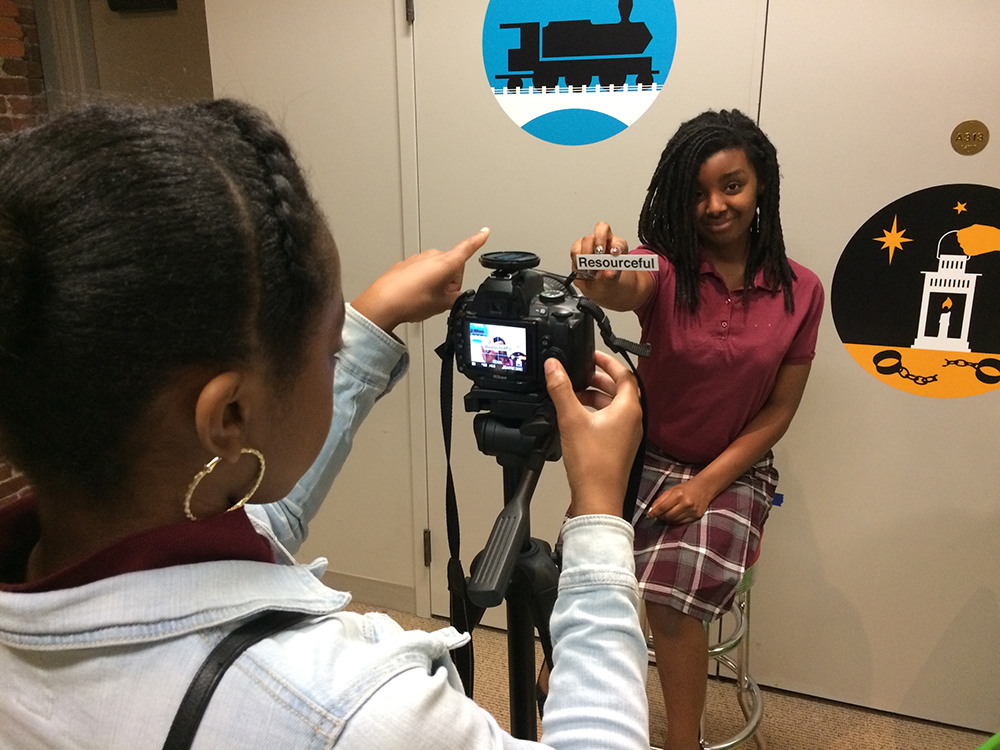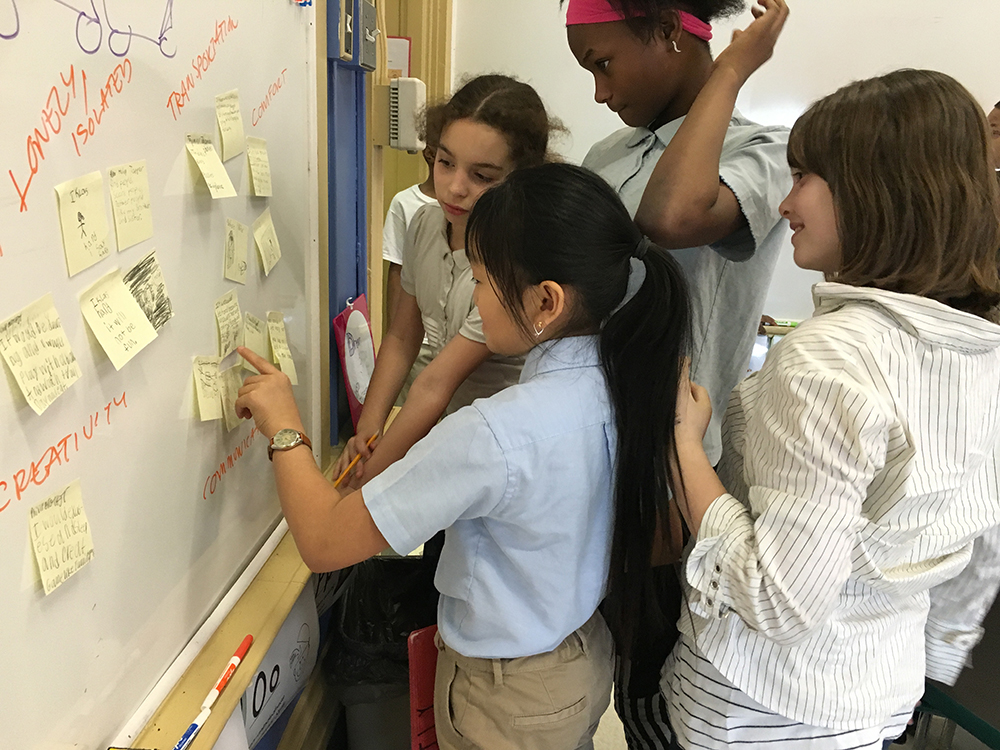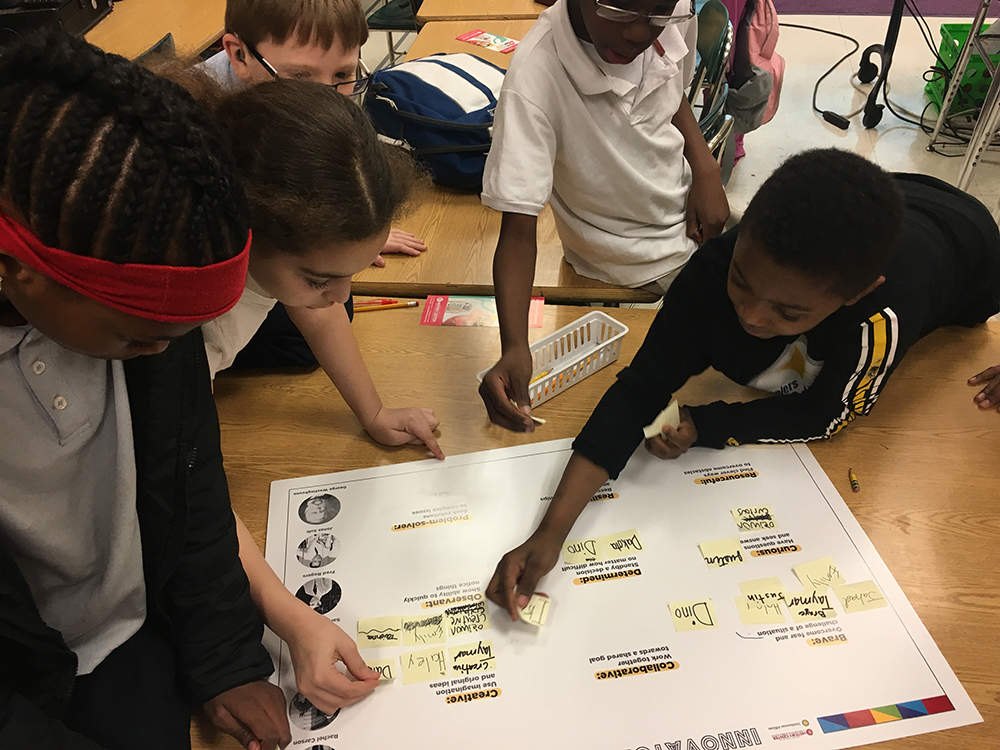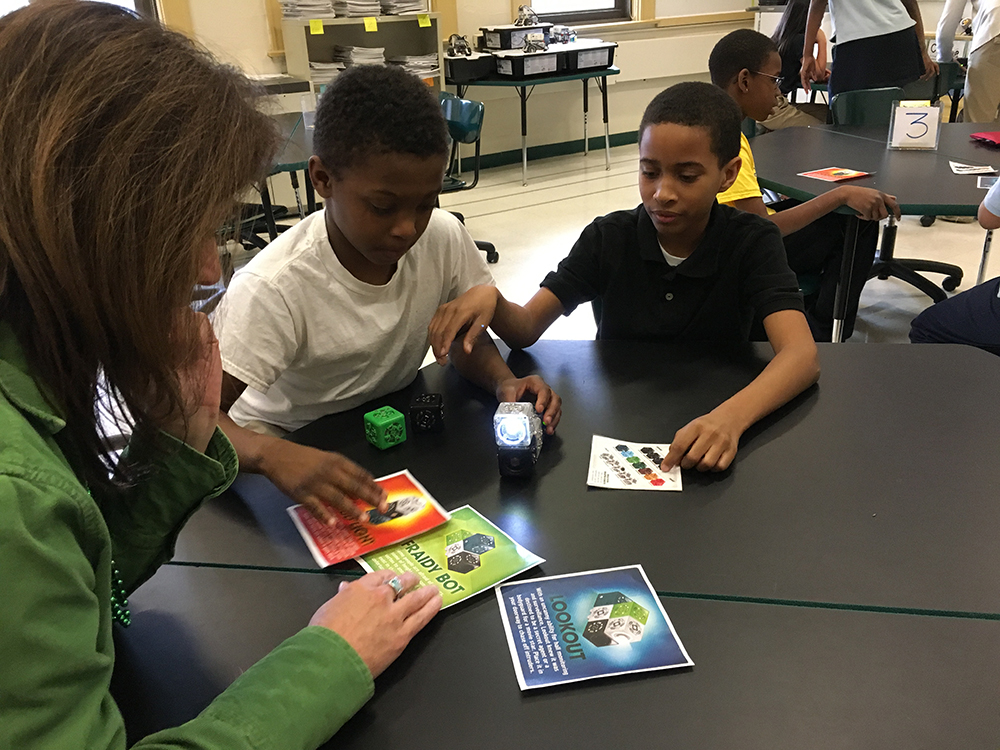
Pittsburgh’s history includes numerous examples of new ideas and innovations that can offer inspiring lessons for new generations of innovators. The History Center’s Education department has developed a series of programs that provide historical examples of innovators to help draw out real world applications for today’s students. With support from the Grable Foundation, we have been creating hands-on, inquiry-based activities to enhance and extend the experience of the Pittsburgh: A Tradition of Innovation exhibition. School groups connect with the work of innovators through STEAM (Science, Technology, Engineering, Arts, Math) themed programs, ranging from following in the footsteps of environmentalist Rachel Carson by becoming citizen scientists to building modular robots to discovering concepts of systems thinking as it relates to the work of George Westinghouse.
Another phase of this effort has been the development of digital extensions and adapting the experiences for off-site locations, enabling students to make connections between themselves and innovators of the past. Students explored the concept of the “innovator mindset,” a set of characteristics shared by innovators across time, and were asked to reflect on how they see these characteristics in themselves. Students from Manchester Academics Charter School (MACS) and Pittsburgh Woolslair described the “Innovator Mindset” attributes in a series of short videos. MACS students then researched, wrote scripts, and used a video app to create one-minute tributes to communicate the impact of Pittsburgh innovators who displayed these characteristics. Norton Gusky, a MACS board member, described the impact of this work by saying, “It’s great to see kids as creative producers. The students really demonstrated their understanding of traits and innovation by developing online videos.” These videos have been effective in growing youth interest by watching their peers’ productions and listening to their reasoning.
To better connect with the range of innovators from our region, visitors can read their bios, take the Innovator match-up quiz, and reflect on their own attributes. Experiences like these allow students to consider how the innovator mindset is as important today as it was centuries ago, and, more importantly, how critical 21st century skills are to our local youth and their potential global impact.
STEAM-focused outreach and partnership efforts will continue through the spring in to summer. During the Week of Remake Learning Days, the History Center and Tech Shop Pittsburgh will offer “Innovator Mindset” activities to students from across the Pittsburgh Public School district through the Pittsburgh Gifted Center. Local school district, South Fayette, a member of the League of Innovative Schools, has invited the History Center to facilitate a teacher’s professional development session at the STEAM Summer Innovation Institute. All of this exciting work draws on the legacy of innovation in this region to foster and inspire a new generation of innovators. We look forward to growing these resources and opportunities in new ways in the future.
This post was written by the History Center Education Department with contributions from Heather Mallak, History Center STEAM consultant.



